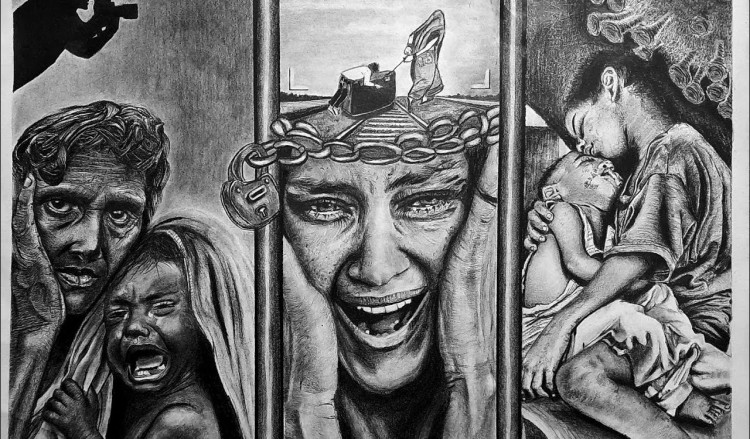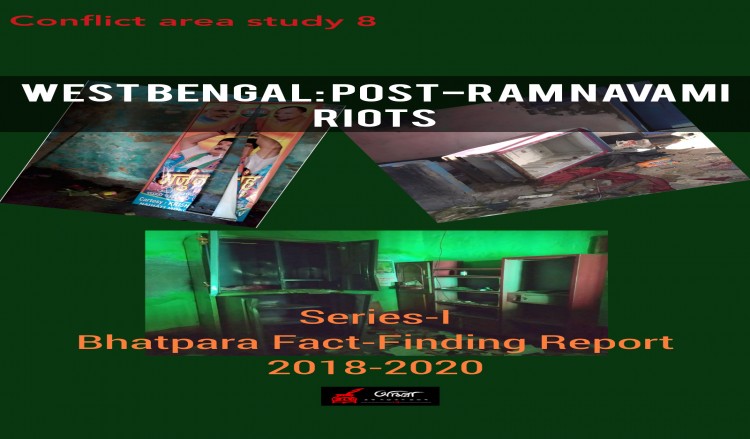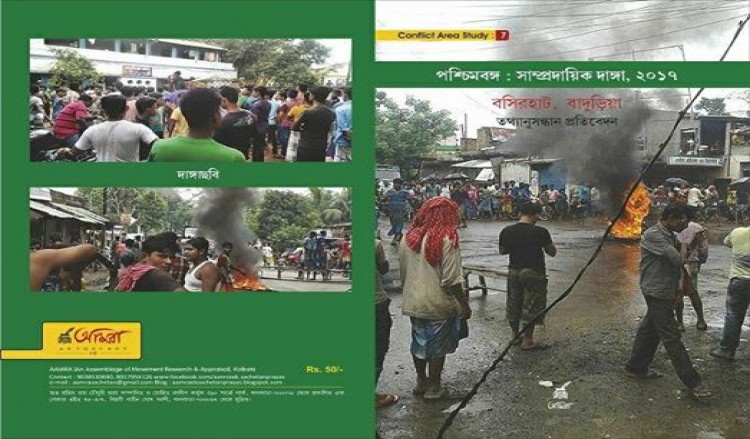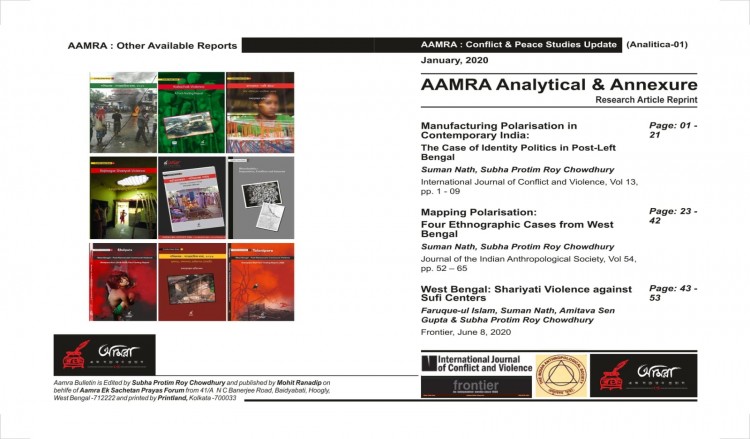
AAMRA Analytical & Annexure January 2020
This research series update represents three scholarly articles published in International Journal of Conflict and Violence (2019), Journal of Indian Anthropological Society (2019), and The Frontier (2019). This update is aimed at circulating the gist of AAMRA’s years long research which is then written in standard social-science format to create a ‘better informed’ scholarly and public sphere regarding the nature and extent of polarisation in practice, their impact and what we can do about it.
AAMRA Analytical & Annexure-I
A A M R A Ek Sachetan Prayas Forum
Research Series Update
Volume - I
2016-2020
Manufacturing Polarisation in Contemporary India: The Case of Identity Politics in Post-Left Bengal
International Journal of Conflict and Violence, Vol 13, pp. 1 - 09
Mapping Polarisation: Four Ethnographic Cases from West Bengal Journal of the Indian Anthropological Society, Vol 54, pp. 52 – 65
West Bengal: Shariyati Violence against Sufi Centers
https://www.frontierweekly.com › views › jun-20 › 8-6-.
AAMRA Analytical & Annexure
January 2020
Edited by: Subha Protim Roychowdhury
Cover Design & Composition:Faruque-ul Islam
Published by: Mohit Ranadip
A A M R A Ek Sachetan Prayas Forum
Regd. Office: 41/1, N.C. Banerjee Road, Baidyabati-702222, Hooghly
Ph: 918697095776
City Office: 47, Gobinda Banerjee Lane, Tollygunje, Kolkata- 700032
Ph: 8820852054
E-mail: aamrasachetan@gmail.com.com
Website: aamrabharatbarsha.com
Printed Versions are available at-
Dhyan-bindu, Manisha Granthalaya, Boi-Chitra; College Street area, Kolkata.
Instead of editorial: Being updated in post-truth era
AAMRA over the last three years have concentrated on two major issues, a) the increasing religious polarisation of the public sphere in West Bengal and its complex impact on everyday life of the people, and b) the further expansion of the corporate interests at the expense of marginal section of the people and its impact on the environment. AAMRA has not been emphasising equally on the studies of co-existence of different faiths and practices although the team members are well aware of the fact that at the level of action research such studies need to be focused and popularised to combat the increasing polarisation that has been systematically percolated among the public sphere through identity politics. One reason for this has been increasing number of ethnic conflict and violence which the team feels should get a priority, especially at a time when the major share of the public media is infected by ‘post truth’, popularised by a variety of means ranging from false and fake news to degenerative memes. Second reason for such ‘partiality’ is rooted in the fact that whenever AAMRA is undertaking studies on ethnic conflict they are getting information regarding the mechanisms through which already existing syncretic traditions are either undermined or attacked. Moreover, the year 2019 – 2020 falls within a critical political and economic juncture as India has seen the monumental second term to Sri Narendra Modi led Bharatiya Janata Party (BJP) government, a testing time for the West Bengal politics which our team closely follows and an increasing unrest among the common people because of a constant economic slowdown.
AAMRA has published four original reports through repeated field visits and by using ‘thick description’ of the interview and documentation of secondary documents. At the end of each report AAMRA has been able to give analytical description and a degree of conceptualisation which can be used by the researchers in future. The team has also published a translated version of Neha Dikshit’s “Operation Beti Uthao” which was published in Outlook India.
This research series update represents three scholarly articles published in International Journal of Conflict and Violence (2019), Journal of Indian Anthropological Society (2019), and The Frontier (2019). This update is aimed at circulating the gist of AAMRA’s years long research which is then written in standard social-science format to create a ‘better informed’ scholarly and public sphere regarding the nature and extent of polarisation in practice, their impact and what we can do about it. The Frontier’s article is a reminder that while the public sphere is busy debating polarisation, identity politics the crony capitalism is even more aggressive in displacing people, destroying natural resources.
[ Full content will be uploaded ]
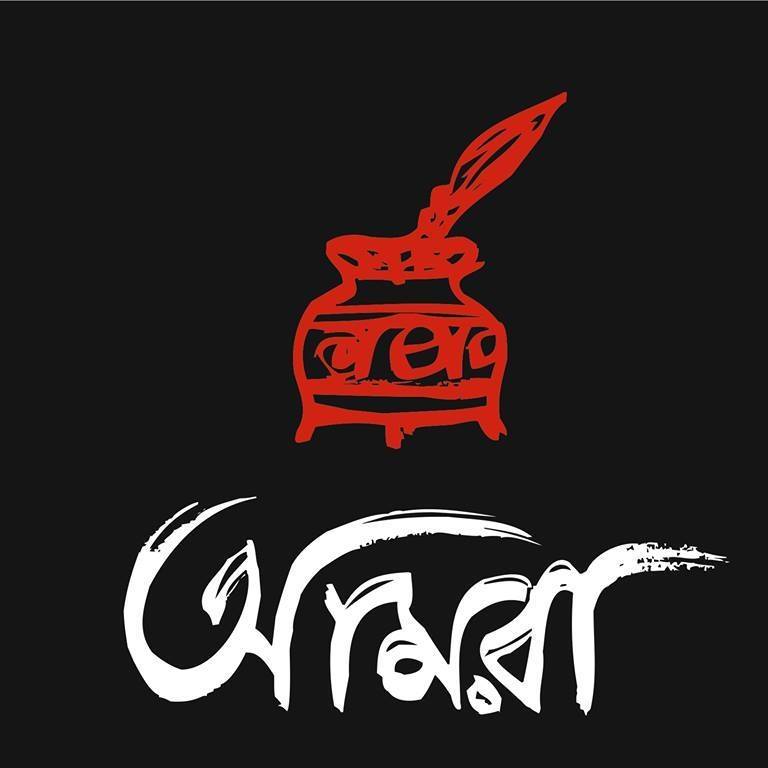
আমরা: এক সচেতন প্রয়াস
AAMRA is an amalgamation of multidisciplinary team of researchers and activists erstwhile worked as an assemblage of movement, research and activism. Popular abbreviation of AAMRA is, An Assemblage of Movement Research and Appraisal.-
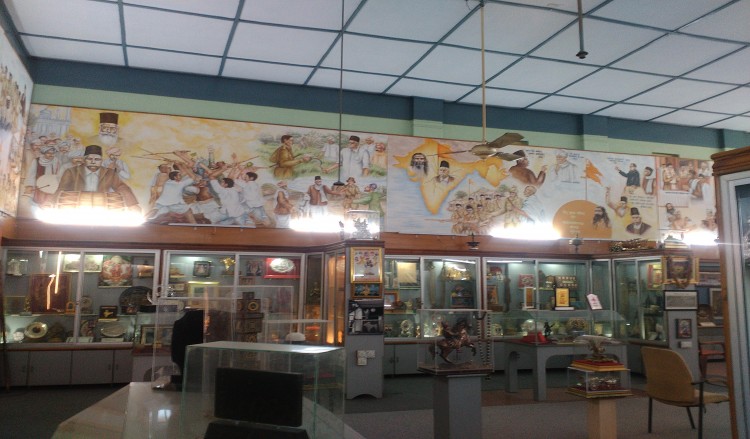
আর এস এস সদর দপ্তরে 'কামান দাগা'
আর এস এস-এর স্বরূপ কতটা... -

তেলেনিপাড়া তথ্যানুসন্ধান প্রতিবেদন, ২০২০
আমরা এক সচেতন প্রয়াসের... -
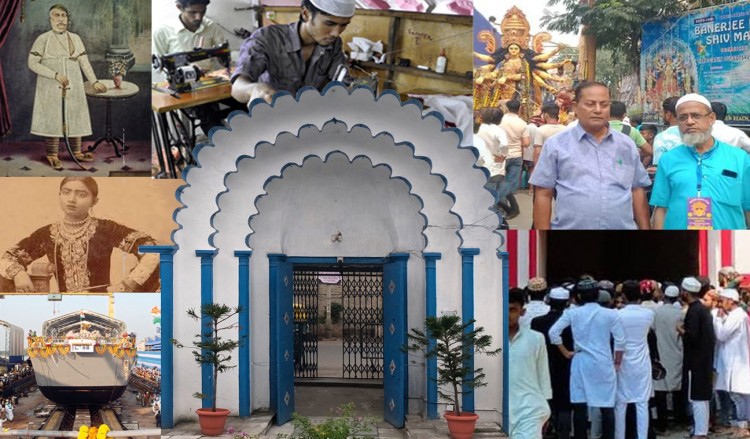
Festival, 2024: Garden Reach Fact-Finding Report: Series-I
This report will focus on the communal conflict that... -
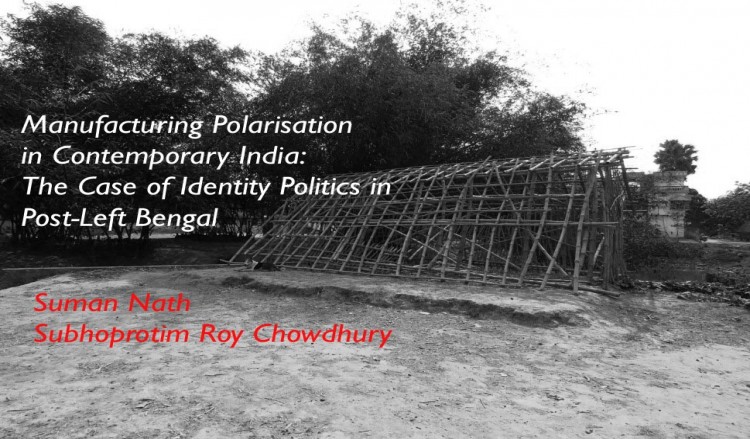
Manufacturing Polarisation in Contemporary India: The Case of Identity Politics in Post-Left Bengal
This article explores ethnographically the manufacturing...
